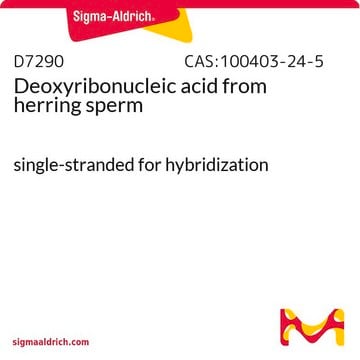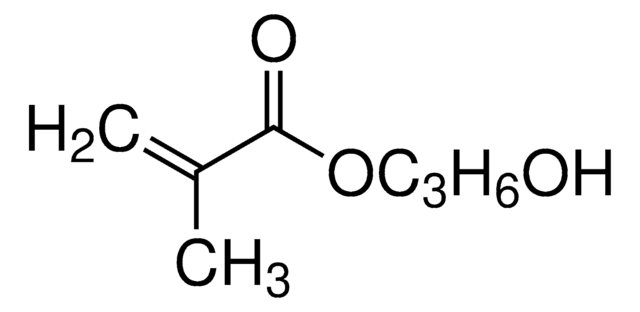529257
Poly(2-hydroxyethyl methacrylate)
average Mv 1,000,000
Synonym(s):
Poly(2-HEMA), Poly-HEMA
Sign Into View Organizational & Contract Pricing
All Photos(1)
About This Item
Linear Formula:
(C6H10O3)n
CAS Number:
MDL number:
UNSPSC Code:
12162002
PubChem Substance ID:
NACRES:
NA.23
Recommended Products
form
crystals
Quality Level
mol wt
average Mv 1,000,000
density
1.15 g/mL at 25 °C (lit.)
SMILES string
CC(=C)C(=O)OCCO
InChI
1S/C6H10O3/c1-5(2)6(8)9-4-3-7/h7H,1,3-4H2,2H3
InChI key
WOBHKFSMXKNTIM-UHFFFAOYSA-N
Looking for similar products? Visit Product Comparison Guide
Physical form
Water-swellable polymer. Hydrogel.
Storage Class Code
11 - Combustible Solids
WGK
WGK 3
Flash Point(F)
Not applicable
Flash Point(C)
Not applicable
Personal Protective Equipment
dust mask type N95 (US), Eyeshields, Gloves
Choose from one of the most recent versions:
Already Own This Product?
Find documentation for the products that you have recently purchased in the Document Library.
Customers Also Viewed
Amit D Bhrany et al.
JAMA facial plastic surgery, 15(1), 29-33 (2013-01-19)
To evaluate the performance of a sphere-templated poly(2-hydroxyethyl methacrylate) (poly[HEMA]) tissue scaffold as a subcutaneous implant by comparing it with widely used high-density porous polyethylene (HDPPE) implant material. We implanted sphere-templated porous poly-(HEMA) and HDPPE disks into the dorsal subcutis
Craig N Czyz et al.
Ophthalmic plastic and reconstructive surgery, 29(1), e25-e27 (2012-07-28)
Hydrogel was a commonly used material for scleral buckling in the early 1980s to the mid-1990s. Use of hydrogel ceased due to a high complication rate, including frequent migration. Various symptoms and clinical findings have been reported with hydrogel migration.
Yunfeng Li et al.
ACS applied materials & interfaces, 5(6), 2126-2132 (2013-02-23)
This paper presents a versatile way to prepare multiscale and gradient patterns of proteins. The protein patterns are fabricated by conjugating proteins covalently on patterns of polymer brush that are prepared by techniques combining colloidal lithography with photolithography, and two-step
Olga Samsonova et al.
Acta biomaterialia, 9(2), 4994-5002 (2012-10-13)
The mechanism causing variability in DNA transfection efficacy for low-molecular-weight pDMAEMA (poly(2-(dimethylamino)ethyl methacrylate) and pDMAEMA-b-pHEMA (poly(2-(dimethyl amino)ethylmethacrylate)-block-poly(2-hydroxyl methacrylate)) has so far remained unclear, apart from the evidence of beneficial effects of the pHEMA grafting. This study has explicitly characterized the
N Nogueira et al.
Journal of colloid and interface science, 385(1), 202-210 (2012-07-31)
The behavior of poly(2-hydroxyethyl methacrylate) (PHEMA) polymer monolayer spread on water was studied under various experimental conditions. The influence of subphase pH and temperature, compression speed, elapsed time from the deposit of the monolayer and the recording of the surface
Our team of scientists has experience in all areas of research including Life Science, Material Science, Chemical Synthesis, Chromatography, Analytical and many others.
Contact Technical Service










